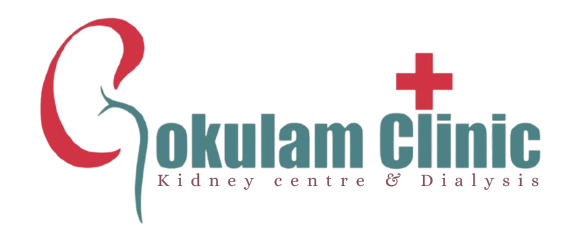Best Kidney Transplant Hospital in Tambaram | Chennai
If you are looking for the best kidney transplant hospital in tambaram, Chennai? Gokulam Kidney Clinic Provides advanced treatments for all types of kidney problems.
Leading Kidney Transplant Hospital in Chennai: Excellence in Renal Care
Get cutting-edge kidney treatment in Chennai from our committed group of kidney surgery specialists. We are dedicated to offering the best medical care possible for a range of renal diseases, from thorough diagnosis to individualized treatment programs. You can rely on us for superior renal care and a caring attitude toward your health.
Kidney transplantation is the definitive treatment of kidney failure needing dialysis.
Kidney Transplantation procedure:
The kidney of the donor is moved during a kidney transplant, usually to the lower right or left quadrant of the patient’s abdomen. The patient’s damaged kidneys are not removed until necessary. To prevent rejection of the newly transplanted kidney, the patient will require lifelong immunosuppressive medication after the transplant procedure.
The patient is placed on the Organ Procurement and Transplantation Network (OPTN) waiting list if the transplant is approved, or the patient’s family member may donate after a battery of tests.
Three to five hours is the average time for a kidney transplant. A belly incision is made above the groin by the surgeon after the patient has been maintained completely unconscious. When a patient is not in discomfort or has an infection, the old kidneys are removed and replaced with new ones. The ureter, the tube that delivers urine from the kidney, is connected to the bladder by the surgeon after its blood vessels are joined. Afterward, stitches, staples, or special glue are used to seal the abdominal opening.
Types of Kidney Transplant?
Live donor kidney transplants, in which a living donor—typically a family member—donates their kidney, and deceased donor kidney transplants, in which the kidney comes from a deceased person, are the two primary types of kidney transplants. Every kind offers benefits and things to keep in mind.
Team
Kidney specialists at Gokulam Clinic work closely with urologists, andrologists, and nephrologists as part of a committed team, backed by knowledgeable and skilled staff. The Department of Renal Science endeavors to offer top-notch services and considerate care to every patient, adhering to the Sakra philosophy of patient well-being.
In addition to emergency support for all forms of Kidney Transplant therapy procedures, we offer dialysis services around-the-clock.
FAQ
When is a kidney transplant advised, and what does it entail?
A kidney transplant is a surgical operation in which a recipient suffering from renal failure receives a healthy kidney from a donor. When a person has end-stage renal disease (ESRD), their kidneys can no longer work properly. They are not good candidates for dialysis, and they want to enhance their quality of life.
Which kinds of kidney donors are available for transplantation?
Living donors and deceased donors are the two primary categories of kidney donors. Living donors usually give one kidney and might be either related or unrelated to the recipient. Conversely, deceased donors typically donate their kidneys through organ donation programs after passing away.
What is the length of time needed for a kidney transplant procedure, and how long does recuperation take?
A kidney transplant surgery usually takes three to five hours to complete. Everybody recovers differently, but in general, a week or so in the hospital is followed by several weeks of intensive observation and post-operative care to guarantee the transplant’s success.
What risks and challenges come with receiving a kidney transplant?
A kidney transplant is usually thought to be a safe treatment, however there are certain risks and complications involved. These could include adverse reactions to immunosuppressive drugs used to prevent rejection, infection, hemorrhage, blood clots, and rejection of the transplanted kidney.
How does one go about locating a healthy kidney donor for a transplant?
Selecting an appropriate kidney donor necessitates a thorough assessment of the recipient and possible donors. To guarantee the best possible match and lower the chance of rejection, this comprises tissue matching, blood testing, medical history evaluations, and compatibility testing.
Why and for whom is kidney transplant surgery performed?
The process of kidney transplant surgery involves the transplantation of a healthy kidney into a recipient who has end-stage renal disease or kidney failure. The donor kidney might be living or deceased. It is usually advised for people whose kidneys are no longer able to operate normally, who need continuous dialysis, or who have tried every other kind of treatment.
How do kidney transplant procedures operate?
A kidney transplant involves surgically implanting the donor kidney into the lower abdomen while leaving the recipient’s damaged kidney(s) in situ. Urine can move from the new kidney into the bladder thanks to the connections between the recipient’s bladder and the donor kidney’s ureter and blood arteries.
What advantages does kidney transplant surgery have over dialysis?
A kidney transplant procedure can provide several benefits over dialysis, such as enhanced quality of life, reduced dietary limitations, increased independence and adaptability in day-to-day activities, and possibly better long-term results. In addition, transplant recipients could feel better overall and have more energy than dialysis patients.
What lifestyle modifications are required following kidney transplant surgery?
A receiver undergoing kidney transplant surgery will need to modify their lifestyle in order to preserve the new kidney and advance general health. This could entail taking prescription drugs as directed, maintaining a balanced diet, getting regular exercise, abstaining from tobacco and excessive alcohol use, and scheduling frequent doctor’s appointments.
Can I resume my regular activities and job after a kidney transplant?
A lot of people who receive kidney transplants are able to go back to their regular lives and return to work once they have fully recovered. Depending on their overall health and the type of their profession, each person’s timing is different. For individualized advice, return-to-work plans must be discussed with the transplant team.

